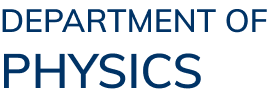Abstract
In insulating solids, heat travels thanks to phonons. In clean non-magnetic crystalline insulators, thermal conductivity is governed by Umklapp phonon-phonon collisions and at cryogenic temperatures, phonons become ballistic. Thermal conductivity peaks at an intermediate temperature at which phonon-phonon collisions do not produce entropy. Recently, a thermal Hall signal has been observed in numerous insulators. In all cases, the thermal Hall angle is maximum at this peak temperature with an amplitude below an intriguing upper bound independent of the phonon mean-free-path. I will argue that a plausible explanation of this experimental observation is to be found beyond the adiabatic and the harmonic approximations. Combined with anharmonicity, the breakdown of the Born-Oppenheimer approximation in a magnetic field can offer a geometric phase to ordinary acoustic phonons. The expected bound to the thermal Hall angle in this picture is close to what experiments find in elemental insulators, like black phosphorus, germanium and silicon.
Kamran Behnia obtained his Ph.D. working on heavy-fermion systems in Grenoble. He then spent two years as a postdoctoral fellow at the University of Geneva. In 1992, he was hired by the National Center for Scientific Research (CNRS) and spent seven years working on organic and cuprate superconductors at Paris-Sud University. Since 2000, he has been based at the École Supérieure de Physique et de Chimie Industrielles (ESPCI) in Paris. He is interested in collective quantum phenomena in a variety of solids ranging from semimetals to superconductors. He is the author of the book Fundamentals of Thermoelectricity (Oxford University Press, 2015).
